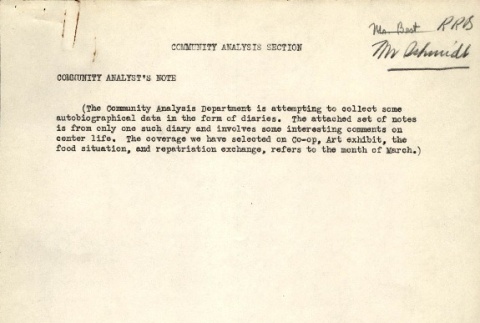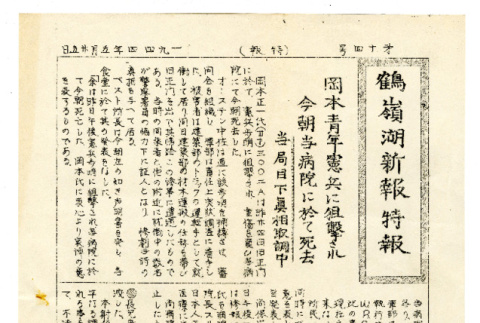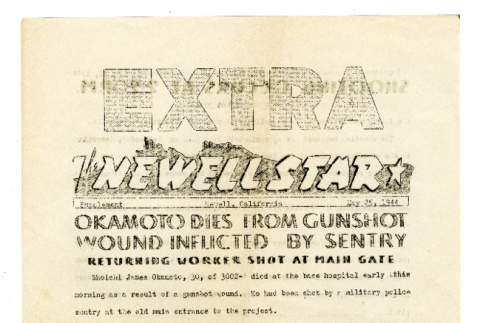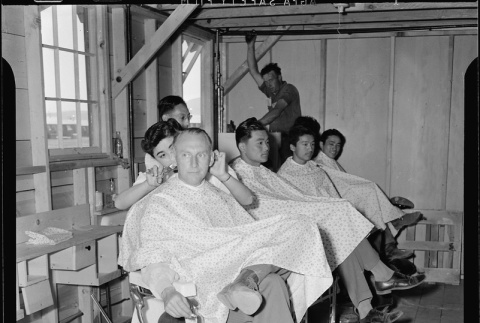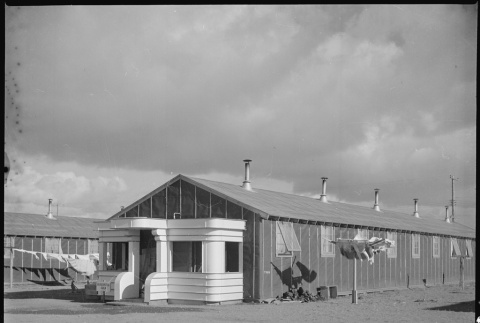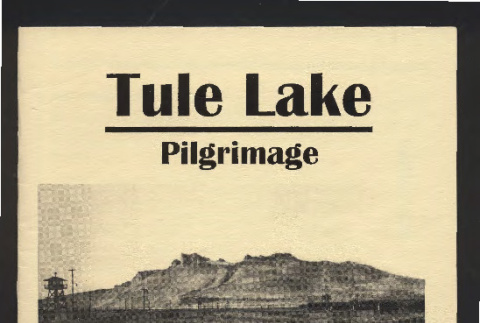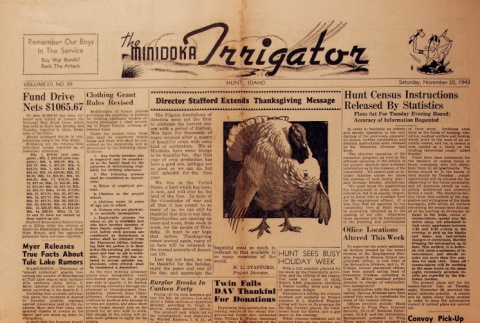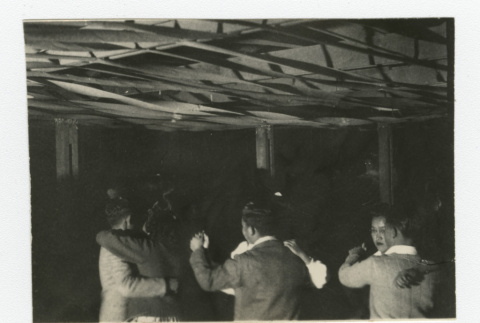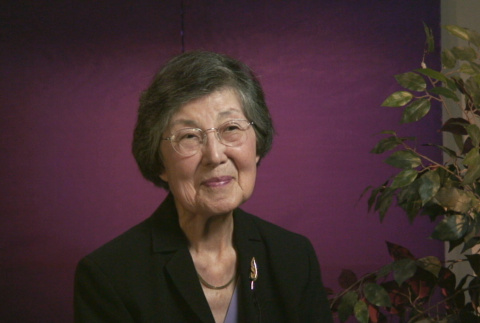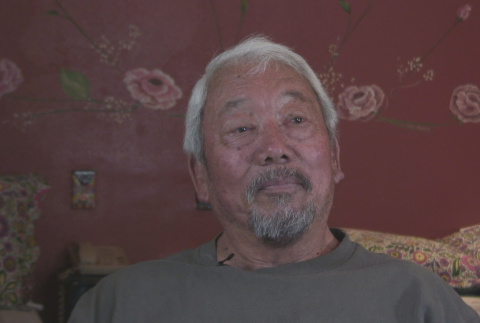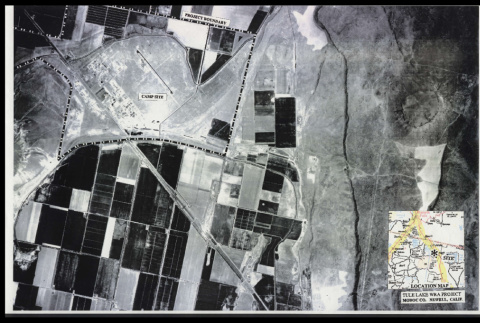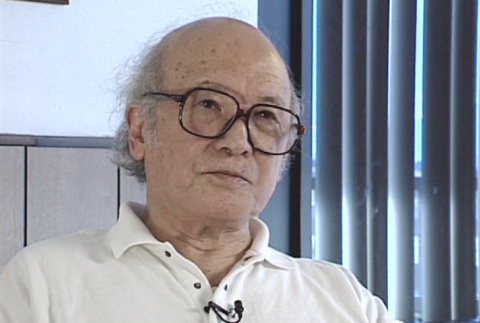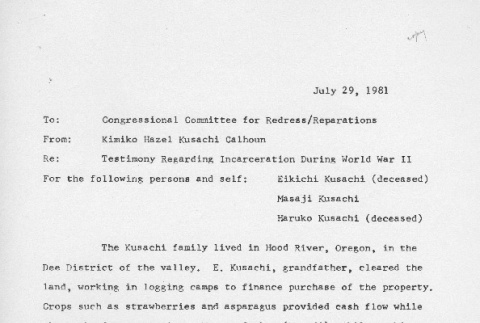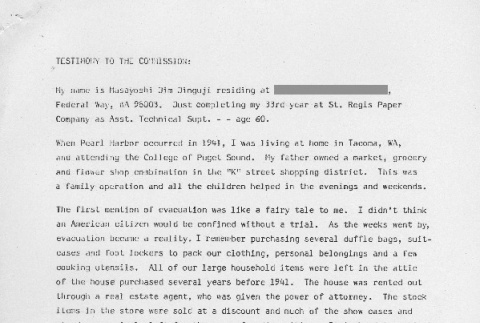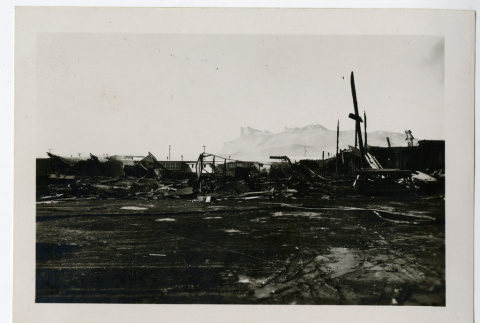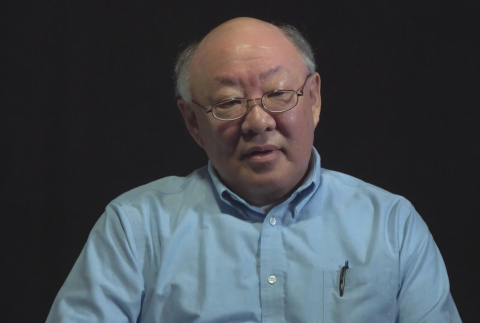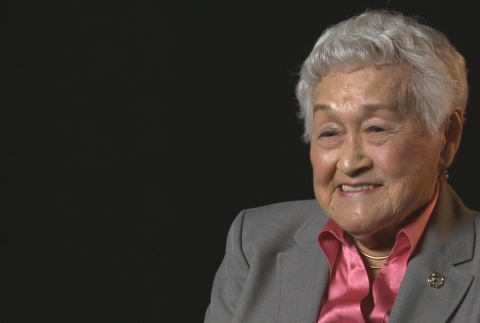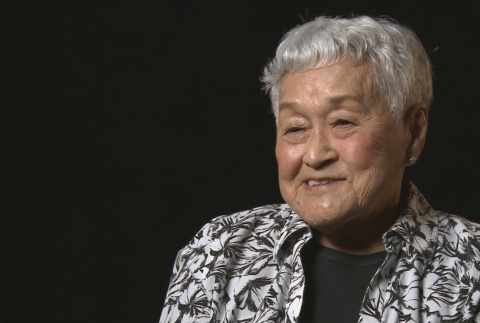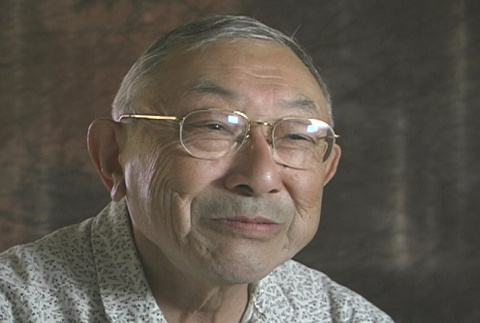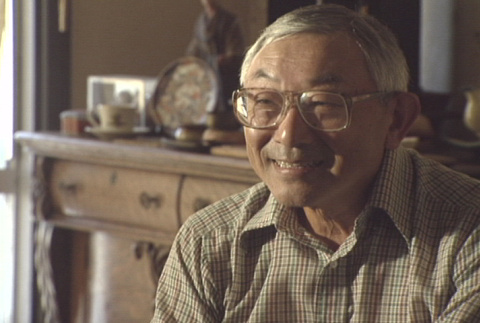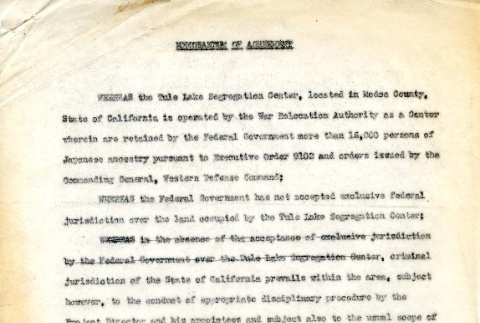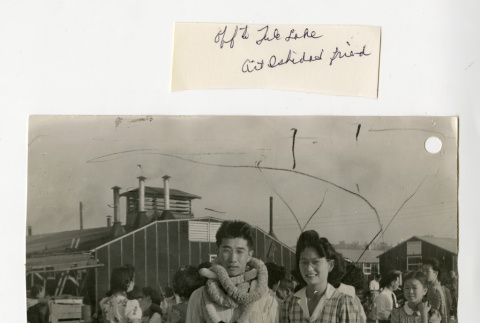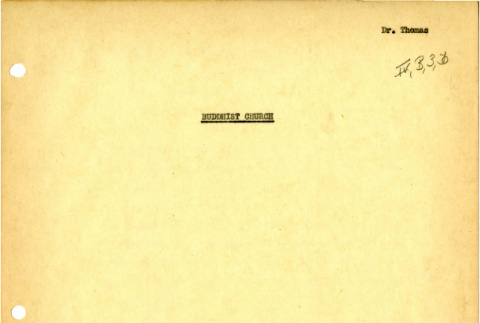975 items
975 items
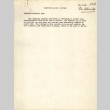
doc
Diary on daily life at Tule Lake Camp (ddr-csujad-2-61)
Diary of daily life at Tule Lake Camp for two days : March 9, 1944 and March 30, 1944. Diary in the form of interviews from anonymous Tule Lake incarcerees. Describes threat of violence from other incarcerees regarding food shortage, an art exhibit, repatriation, and the psychological impact of incarceration. See this object in the California …
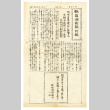
doc
no. 41 (May 25, 1944) (ddr-csujad-34-4)
An extra of "Newell star" a camp newspaper published weekly in the Tule Lake camp. It features the death of Shoichi Okamoto who was shot by the WRA sentry in the Tule Lake camp on May 24, 1944. In Japanese. English section is found in item: csudh_hrs_0003. See this object in the California State Universities Japanese …
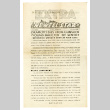
doc
Newell star, extra, supplement (May 25, 1944) (ddr-csujad-34-3)
An extra of "Newell star" a camp newspaper published weekly in the Tule Lake camp. It features the death of Shoichi Okamoto who was shot by the WRA sentry in the Tule Lake camp on May 24, 1944. Japanese section is found in item: hrs_0004. See this object in the California State Universities Japanese American Digitization …
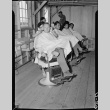
img
Barber shop (ddr-densho-37-384)
Original WRA caption: Tule Lake Relocation Center, Newell, California. Motimer Cooke, Supervisor of Community Enterprises, enjoys the first hair-cut given in the barber shop at this War Relocation Authority center. Frances Imura, evacuee from Sacramento is the barber.
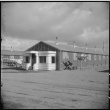
img
Row of barracks (ddr-densho-37-79)
Original WRA caption: Tule Lake Relocation Center, Newell, California. A view down one of the streets of the relocation center, showing the artistic way in which the evacuees decorate the exterior of their barracks to make them more homelike.
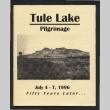
doc
Tule Lake pilgrimage July 4-7 1996: fifty years later ... (ddr-csujad-55-2692)
A program pamphlet of 1996 Tule Lake pilgrimage. See this object in the California State Universities Japanese American Digitization project site: sac_jaac_2856
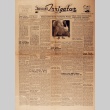
doc
Minidoka Irrigator Vol. III No. 39 (November 20, 1943) (ddr-densho-119-64)
Selected article titles: "Myer Releases True Facts About Tule Lake Rumors" (p. 1), "New Group 'Asks' Demands at Tule" (p. 1), "Hunt Census Instructions Released by Statistics. Plans Set For Tuesday Evening Round; Accuracy of Information Requested" (p. 1), "Burglar Breaks In Canteen Forty" (p. 1), "Volunteers Save Tule Lake Crops" (p. 1), "Life in New …

Collection
CSU Bakersfield Edwin Sasaki Oral History Collection (ddr-csujad-9)
Oral history interview of Edwin (Ed) Sasaki, a professor of the Psychology Department, conducted by the Public History Institute at California State University, Bakersfield. Professor Sasaki was born in Sacramento, California, in November 1940 and grew up in Weiser, Idaho. He recollects his family’s experiences during the World War II, being arrested as a suspect and …
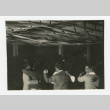
img
Three Nisei couples dancing (ddr-csujad-44-55)
A photograph of three Nisei couples dancing in a dimly lit room while incarcerated at Tule Lake, California. See this object in the California State Universities Japanese American Digitization project site: csumb_ms15_0055
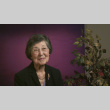
vh
Fusako Yamamoto Interview (ddr-manz-1-49)
Nisei female. Born March 29, 1920, in Sacramento, California, where father owned and operated a restaurant, and mother taught Japanese language school. During World War II, removed to the Marysville Assembly Center and Tule Lake concentration camp, California. Left camp to work in Chicago before eventually returning to Sacramento.
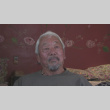
vh
Kenji Ogawa Interview (ddr-manz-1-170)
Sansei male. Born April 16, 1942, in Manzanar, California. In 1943, parents signed "no-no" on the so-called "loyalty questionnaire" and were transferred to the Tule Lake segregation center, California. Moved with family to Japan, and returned to the United States in the 1950s to attend high school.
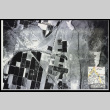
img
Tule Lake WRA Center (ddr-csujad-55-2474)
Aerial photographic map indicating the area boundary of the Tule Lake incarceration camp in Modoc County, California. See this object in the California State Universities Japanese American Digitization project site: sac_jaac_2580
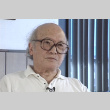
vh
Minoru Kiyota Interview (ddr-densho-1000-36)
Kibei male, born October 12, 1923, in Seattle, Washington. Raised primarily in San Francisco, California, spending four years in Hiratsuka, Japan. Was incarcerated with his family at Topaz concentration camp, Utah. Refused to sign the so-called "loyalty questionnaire," and as a consequence was moved to Tule Lake Segregation Center, California. In Tule, he renounced his U.S. …
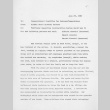
doc
Testimony of Kimiko Hazel Kusachi Calhoun (ddr-densho-67-262)
Written testimony of Kimiko Hazel Kusachi Calhoun of Hood River, Oregon. Incarcerated in the North Portland Assembly Center, Oregon, and Tule Lake concentration camp, California. This testimony was submitted for the CWRIC hearings in Seattle, Washington, September 9-11, 1981.
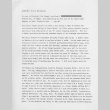
doc
Testimony of Masayoshi Jin Jinguji (ddr-densho-67-313)
Written testimony of Masayoshi Jin Jinguji. Incarcerated in the Puyallup Assembly Center, Washington, and the Tule Lake concentration camp, California. This testimony was submitted for the CWRIC hearings in Seattle, Washington, September 9-11, 1981. Personal information excised by Densho.
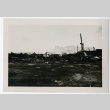
img
Tule Lake fire damage (ddr-csujad-3-12)
Photograph of burnt buildings demolished by fire at Tule Lake. See this object in the California State Universities Japanese American Digitization project site: tos_01_001_013
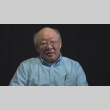
vh
Gary Yamagiwa Interview (ddr-chi-1-7)
Sansei male. Born May 8, 1953, in Chicago, Illinois. Parents were Nisei, sent to the concentration camps at Poston, Arizona, Manzanar and Tule Lake, California, during World War II. After leaving camp, resettled in Chicago, where Gary was born and raised.
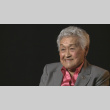
vh
Clara S. Hattori Interview I (ddr-densho-1000-426)
Nisei female. Born May 21, 1919, in Sacramento, California. Grew up in the Loomis area of California, where parents ran a farm and fruit orchard. Just prior to World War II, worked in the Japanese Pavilion at the San Francisco World's Fair of 1939-1940. During World War II, removed to the Marysville Assembly Center, California, and …
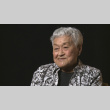
vh
Clara S. Hattori Interview II (ddr-densho-1000-427)
Nisei female. Born May 21, 1919, in Sacramento, California. Grew up in the Loomis area of California, where parents ran a farm and fruit orchard. Just prior to World War II, worked in the Japanese Pavilion at the San Francisco World's Fair of 1939-1940. During World War II, removed to the Marysville Assembly Center, California, and …
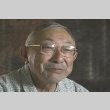
vh
Hiroshi Kashiwagi Interview (ddr-densho-1000-165)
Nisei male. Born November 8, 1922, in Sacramento, California. Spent childhood and adolescence in Loomis, California, before spending senior year in high school in Los Angeles, California. After the bombing of Pearl Harbor, removed to Marysville Assembly Center, California, and then to Tule Lake concentration camp, California. Resisted the draft and renounced U.S. citizenship, remaining with …
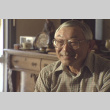
vh
Hiroshi Kashiwagi Interview (ddr-densho-1002-4)
Nisei male. Born November 8, 1922, in Sacramento, California. Spent childhood and adolescence in Loomis, California, before spending senior year in high school in Los Angeles, California. After the bombing of Pearl Harbor, removed to Marysville Assembly Center, California, and then to Tule Lake concentration camp, California. Resisted the draft and renounced U.S. citizenship, remaining with …
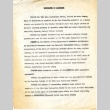
doc
Memorandum of agreement (ddr-csujad-2-82)
Draft of agreement, to be signed by the Project Director of the Tule Lake Segregation Center and the District Attorney of Modoc County, regarding their respective financial and legal responsibilities in investigating and prosecuting criminal violations of State law at the Tule Lake camp. The unsigned draft has handwritten editing, including strikeouts. See this object in …
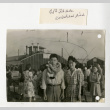
img
Atsushi Art Ishida and Hisako Yatabe leaving for the Tule Lake camp (ddr-csujad-38-109)
Photographed is Atsushi Art Ishida, wearing leis posing with Hisako Yatabe. It is taken in the Jerome incarceration camp in Arkansas when he is leaving for the Tule Lake segregation camp. The attached note reads: Off to Tule Lake, Art Ishida friend. A photo from "George Naohara photo album" (csudh_nao_0001), page 25. See this object in …
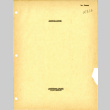
doc
Buddhist church preliminary report (ddr-csujad-26-8)
Description of the development and practices of the Buddhist Church at Tule Lake including Sunday school, adult services and the Young Buddhist Association (YBA). Includes several comparisons to the Christian Church and Christians at Tule Lake. Report compiled as a portion of the Japanese American Evacuation and Resettlement Study (JERS). See this object in the California …

vh
Hiroki Kimiko Keaveney Interview (ddr-chi-1-3)
Yonsei. Born in Los Angeles, California, but raised in Ohio. During World War II, members of their family were incarcerated in the Manzanar and Tule Lake concentration camps in California. Graduated from San Francisco State University with a degree in Ethnic Studies. Moved to Chicago, involved in numerous community groups.
